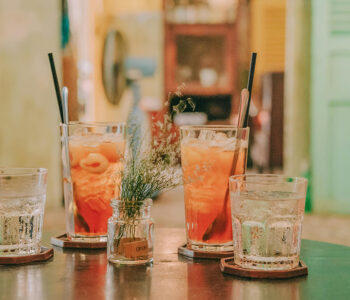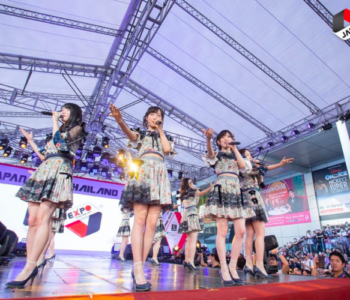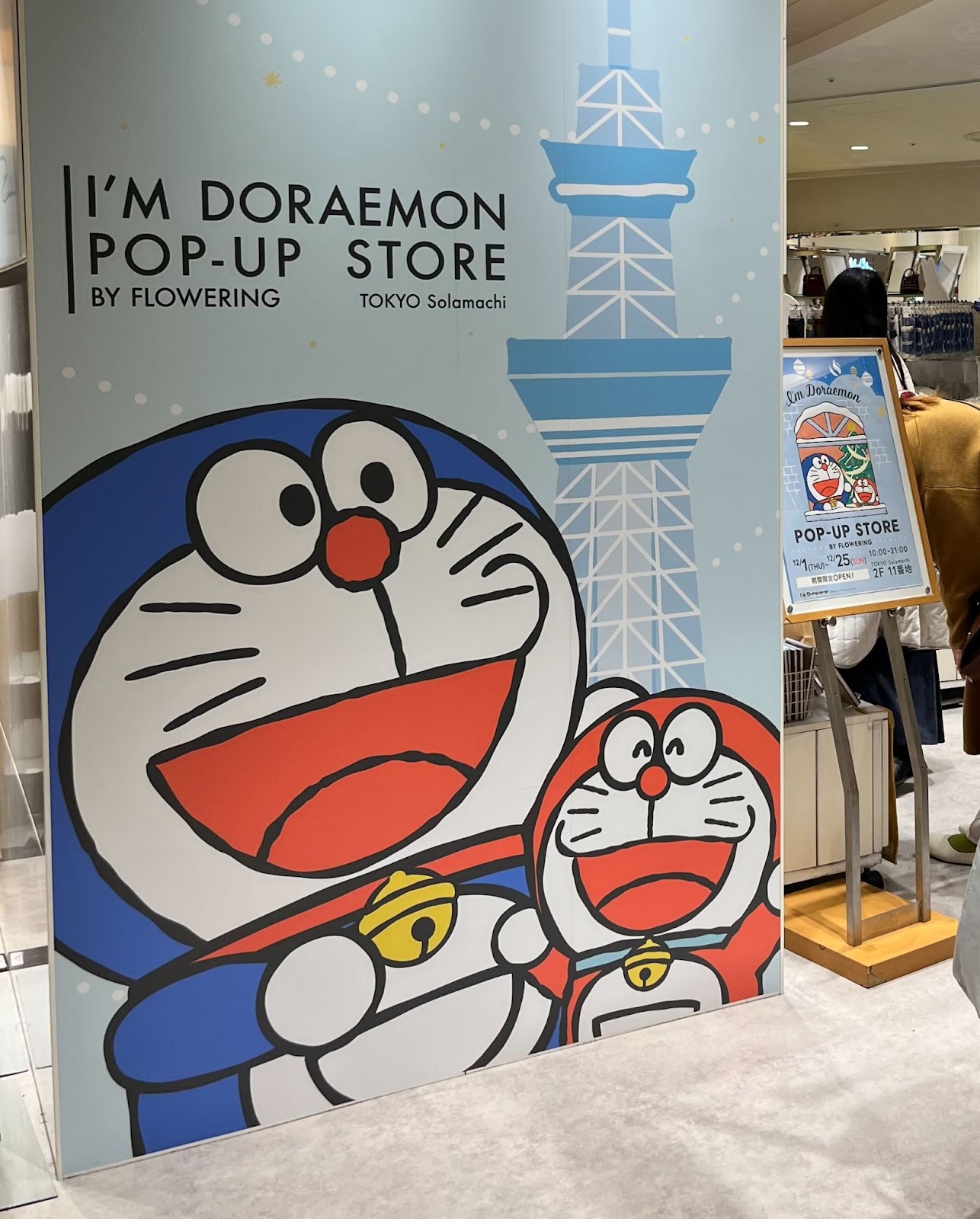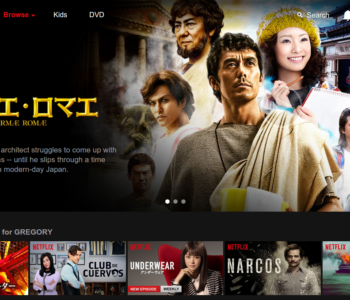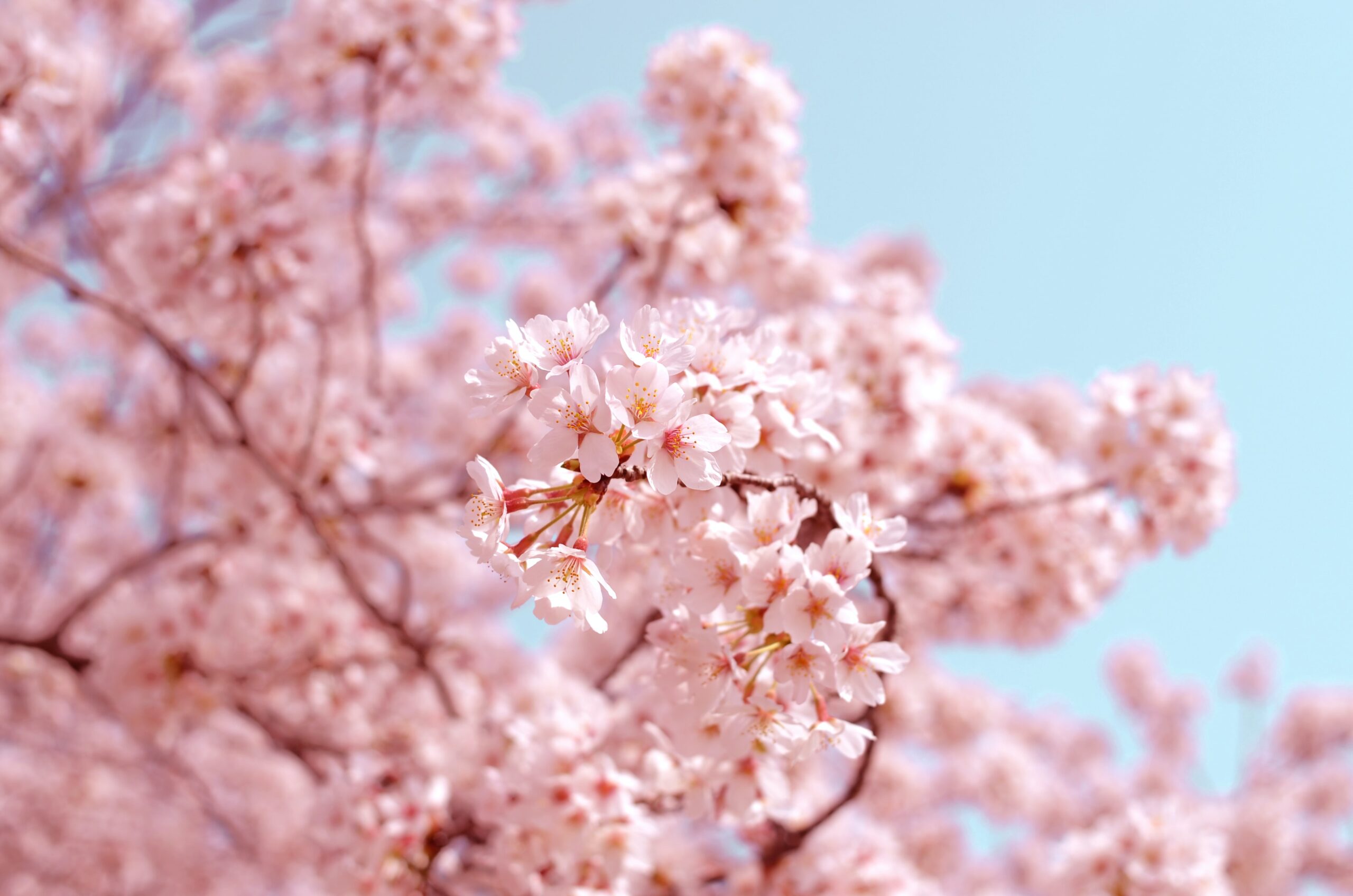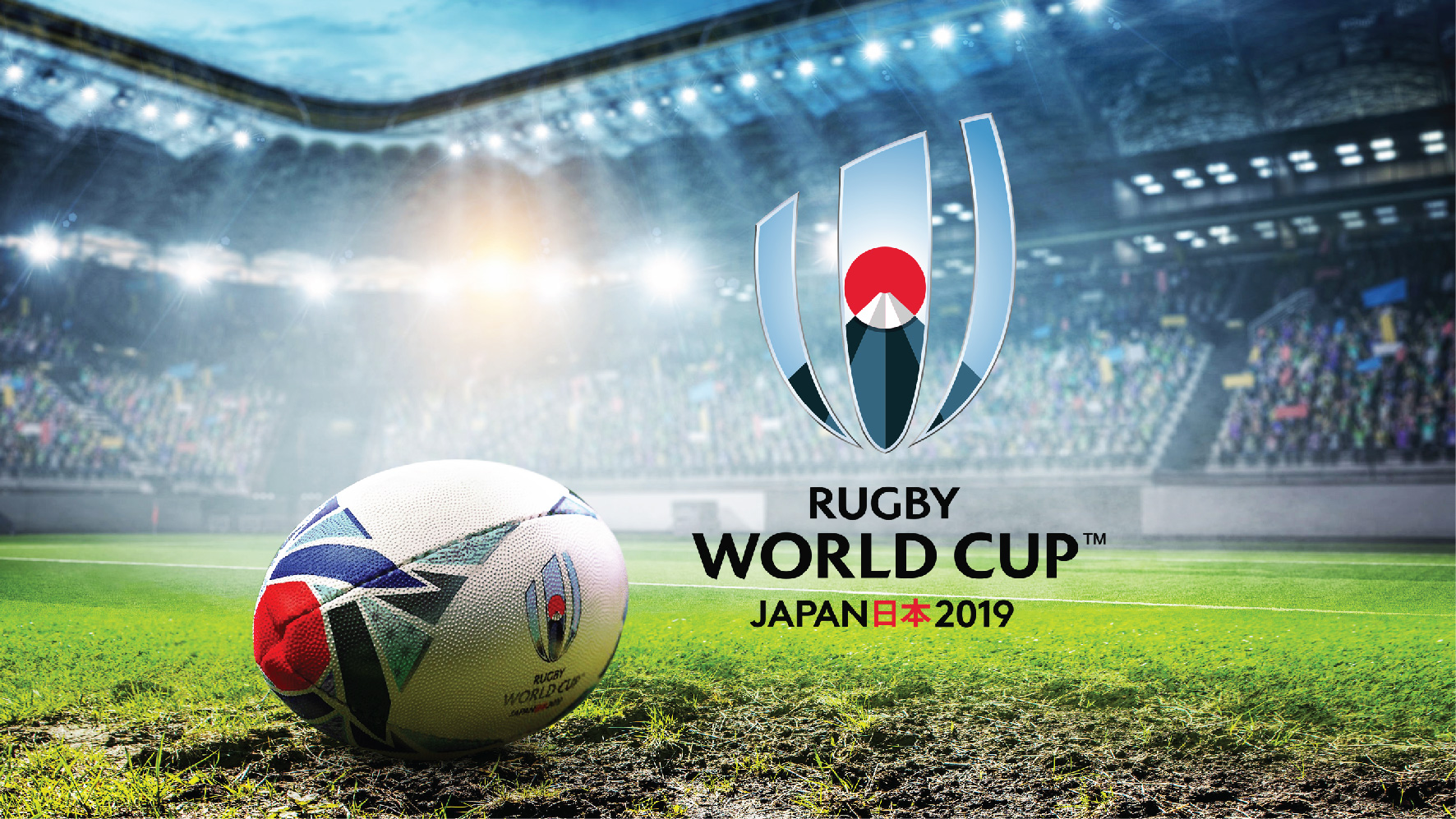 Marketing
Marketing
Rugby World Cup Japan 2019: Putting Local Audiences at…
By Melissa Francis
The Tokyo 2020 Olympic and Paralympic Games begin in under a year (of course, we would later go on to find this wasn’t the case. We discuss this here).
This means that the Rugby World Cup Japan 2019 is an excellent trial period for Japan in terms of hosting a major global sporting event. After all, the country will have to accommodate a mass influx of overseas visitors — approximately 400,000 extra people — specifically going to these tournaments. So, what do the Rugby World Cup’s promotional campaigns look like and what is their significance on a local level?

Sponsor-led Rugby World Cup Japan 2019 Promotions
AIG Japan
AIG Japan is a supporting company for the Japan Rugby Football Union. Their rugby commercial features one of the most popular rugby teams in Japan, New Zealand’s ‘All Blacks’. In the commercial, members of the team can be seen running through the streets of Tokyo, at first seeming to be causing a commotion. In actual fact, however, they are actively saving passersby from various dangerous situations. At the very end, a young Japanese boy runs towards the men and tackles one of them to the ground to prevent him being hit by falling debris. The boy and rugby player then share a fistbump in a gesture of solidarity and acknowledgement of their shared mission. This reinforces the concept of teamwork that is so central both in the context of sport and Japanese culture.
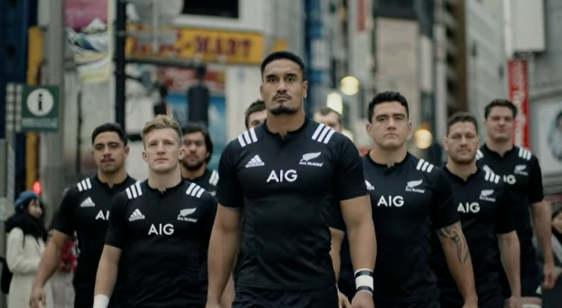
Taisho Seiyaku
Pharmaceutical company Taisho-seiyaku, one of the official sponsors of the Rugby World Cup 2019, has provided a range of related goods and services. They released a commercial in conjunction with their Lipovitan D vitamin-packed energy drink, displaying the mottos of several rugby players from the Japanese team, and ending with a final inspiratonal message —saikyou no jibun de, tachimukaunda (‘I am my strongest self’). The theme of health and vitality associated with rugby fits well with the branding of this drink.
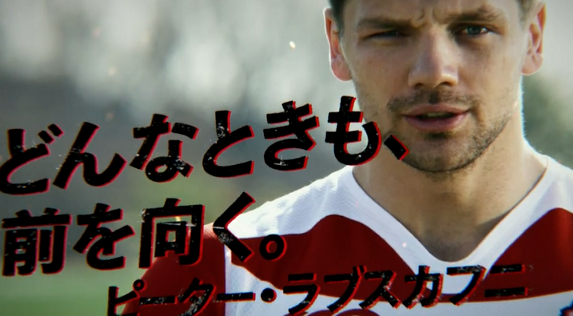
The company also released an app allowing users to try out playing rugby digitally, which features two different modes — ‘Play Mode’ and ‘Potential Mode’. The first enables users to experience a rugby tournament simulation in which one or two players can compete, practising moves such as tackles or passes. On the other hand, the second mode issues five tests measuring aspects such as concentration and memory which, depending on the user’s responses, generates a hypothetical in-field position for them. These types of shindan (diagnostic) quizzes are usually popular in Japan.
Yet another campaign by Taisho Seiyaku offered those who bought Lipovitamin D and collected stickers from the packaging the chance to win various prizes including game tickets, t-shirts, and 4K TVs. The competition was divided into three distinctive categories — ‘Special Experience’, ‘Rugby Support’, and ‘Lifestyle Support’ —to maximise a more widespread appeal among both rugby fans and non-fans alike.
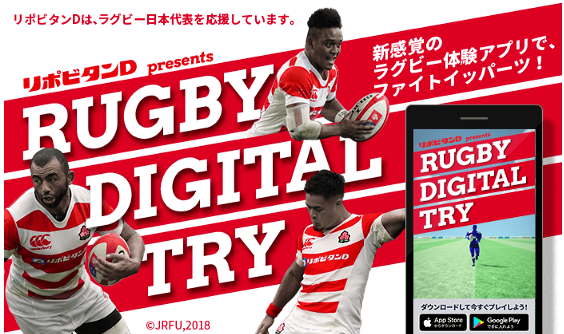
Docomo / Mastercard
As part of their promotional activities, communications giant Docomo ran a lottery-based competition, randomly selecting people who had registered to win free tickets for Rugby World Cup games. Only those who had signed up for a ‘d account’ and ‘d point club’ were eligible to apply. Mastercard also offered something similar to Docomo, but instead of a reward points membership, participants were first required to register for a Trust Club credit card. In this way, the Rugby World Cup acts as an incentive and helps the brands to acquire new customers as a result.
Heineken
Managed by Kirin in Japan, Heineken released limited edition Rugby World Cup Designs for their beer packaging — aiming for 1 million cases to be sold during the tournament period. That’s equivalent to a 35% increase on what’s typically sold during an entire year in Japan. The six-pack of Heineken beers also came as a set with a folding fan featuring the Heineken and Rugby World Cup logos. The brand is also responsible for setting up fan zones near the stadium, with public viewing areas, much like the Live Sites seen during previous Olympic and Paralympic Games.
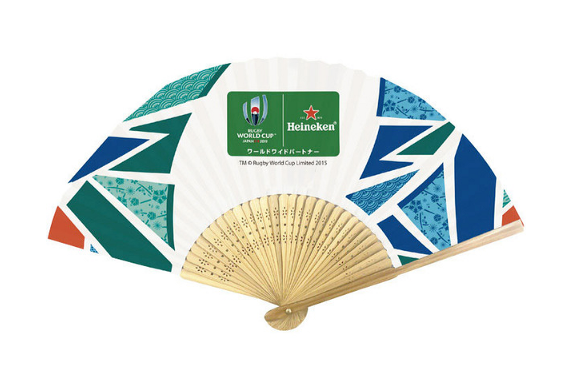
‘500 Days to Go’ — Social Media and Live Events Promoting Rugby World Cup Japan 2019
Sponsored by Heineken, Mastercard, Land Rover, and DHL, 8th May 2018 marked 500 Days To Go until the start of the event. People could enter a competition on social media using the hashtags #FindRugby and #500DTG along with a picture of ‘something elliptical’ like a rugby ball to be in with a chance of winning prizes from sponsors. These included; a mobile washlet from TOTO, rugby balls, tickets to the tournament, hotel breaks in Yokohama, and more.
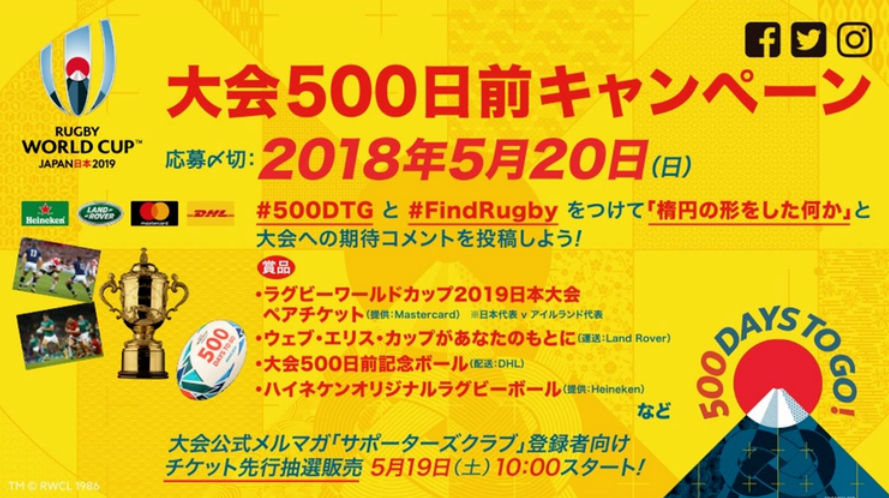
Several ‘500 Days To Go’ events took place across the country on the same day. Notably, these were held in a handful of the host cities, primarily in Shizuoka, Fukuoka, and Tokyo. The event in Shizuoka featured a celebration ceremony followed by a rugby match between South African and Japanese high school teams which had been selected as part of the SANIX World Rugby Youth Tournament 2018. In Fukuoka, celebrations were held outside JR Hakata station featuring rugby players, or ラガーマン (ragaaman) as they are affectionately known among Japanese people, lifting up a member of the public to split open the kusudama — celebratory piñata-like balls with streams of ribbon and confetti flowing out.
Meanwhile, in Tokyo, several events were held, including one in Marunouchi, with activities including rugby ball exercise routines led by fitness instructor Sayaka Azuma.
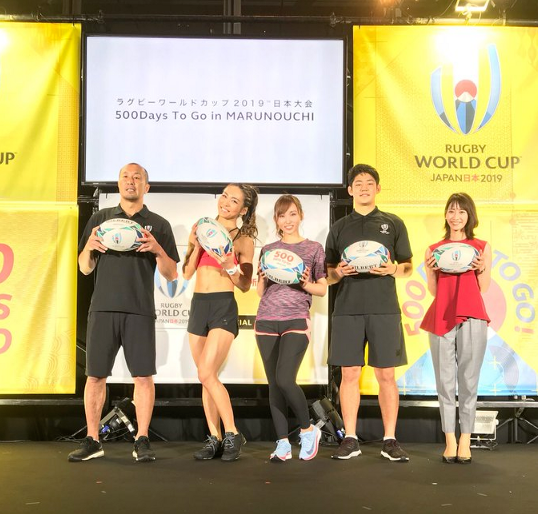
Official Rugby World Cup Japan 2019 Mascots
In one of our previous articles, we outlined the role that mascots and characters play in building affinity with a product, service, region or event. Just as the Tokyo 2020 Games is represented by official characters Miraitomo and Someity, the Rugby World Cup also features two cute and cuddly representatives, Ren and G, known jointly as ‘Ren-G’. These are lion-like creatures with fiery yet soft manes. They were unveiled to the public in early 2018. Official merchandise for the World Cup also widely features Ren-G goods and the pair has proven to be highly shareable, with fans snapping appearances at various events and showing off their related purchases.
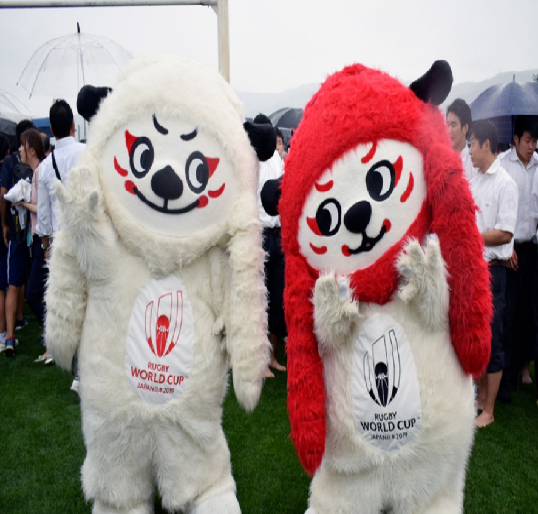
Rugby World Cup Japan 2019 Songs
‘World in Union’ — localised
A Japanese version of the official Rugby theme ‘World in Union’, performed by singer Kiyoe Yoshioka, was released in March this year as the official song for the Rugby World Cup Japan 2019 tournament. The promotional video also includes an inspirational commentary in Japanese that demonstrates the deep bonds formed between rugby players, and compares these emotions with those of Japanese people in everday situations, such as meeting with an important client or starting a new job. The combination of the visuals, narration and the bilingual aspect of the song lyrics have the function of linking the core Japanese values of teamwork and courage with the aspirations of international rugby players.
Watch the full video here.
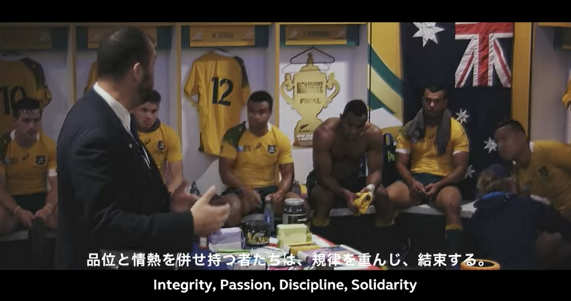
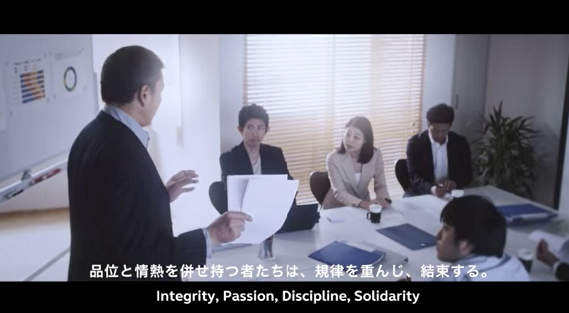
‘BRAVE’ by Arashi
Nippon TV (NTV) holds the local broadcasting rights for the Rugby World Cup Japan 2019. For this reason, veteran boy band Arashi were given the responsibility to perform their own ‘image song’ to promote the event — called ‘BRAVE’. In Japan, image songs are essentially theme songs, designed to reflect the story and emotion associated with an event or programme. This means that members of Arashi will appear as guests during Nippon TV’s broadcasts where the song is played, encouraging fans of the group to tune in even if they aren’t especially interested in watching rugby. It’s common to associate key talents, such as musicians, actors or comedians who have a positive reputation to further publicise an occasion.
Watch a live performance of ‘BRAVE’ here.
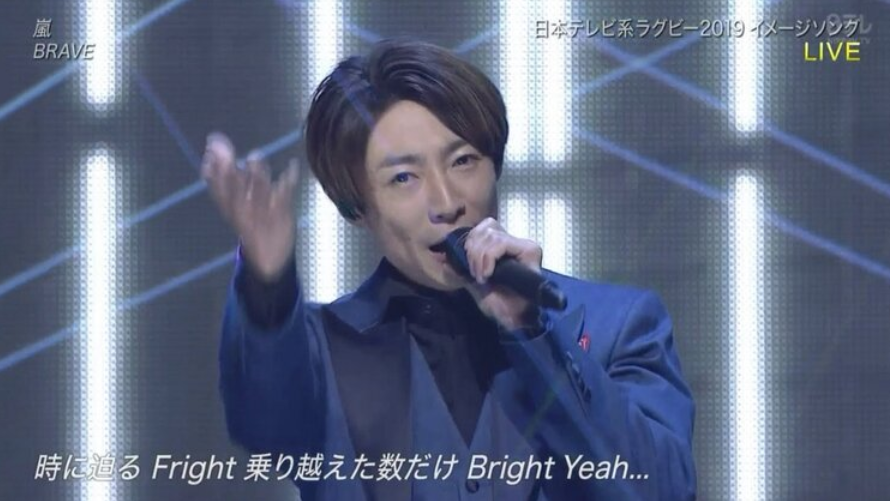
Sports promotion in Japan can take on many forms
The above examples relating to the Rugby World Cup Japan 2019 serve as ideas for how non-Japanese brands can promote themselves when it comes to sports or similar events in Japan. Consider any existing partnerships you may already have there — how can you leverage these and work towards an effective collaboration?
Alternatively, if there’s a specific event you’d like to be associated with, why not team up with local companies that already enjoy long-standing ties with Japan? Remember that relationship-building in this market can take time, so we recommend you start much earlier than might typically be the case with non-Japanese companies. This will enable you to establish a deeper level of trust with that partner so you can continue to be reading from the same page.
Overall, it’s important to create campaigns that have the ability to do at least one of the following things; intrigue, educate, or engage the Japanese public. Combining these may be even more effective, depending on viability. As with Mastercard and Docomo, brands can also take these opportunities to promote new or existing products and services.
For more inspiration on ways you can successfully promote sporting events in Japan, get in touch to discuss your project.

